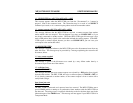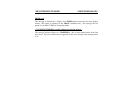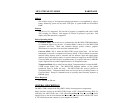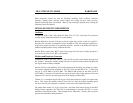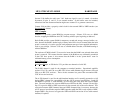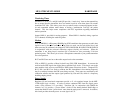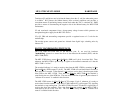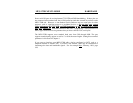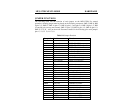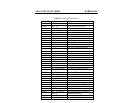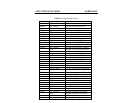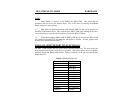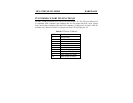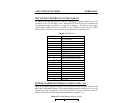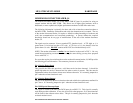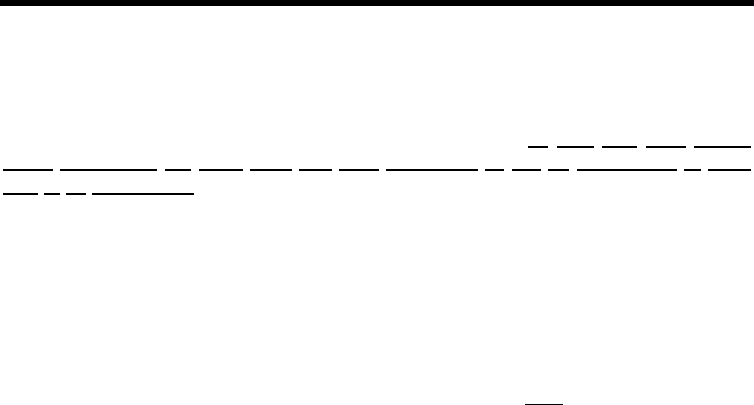
MFJ-1278B MULTI-MODE HARDWARE
Some serial I/O ports do not implement CTS, DTR and DSR handshaking. If these pins are
not connected at the terminal end, they will be pulled up (and thus asserted) by resistors at the
MFJ-1278B end. However, a non-standard serial connector may use some pins for other
purposes, such as supplying power to a peripheral device, so be sure that your system
either implements the CTS, DTR and DSR handshake or has no connections to these
pins of J1 whatsoever. Note that reference to RS-232C "compatibility" or the presence of a
DB-25 type connector does not guarantee that you have a full RS-232C serial port!
The MFJ-1278B supports most standard baud rates from 300 through 9600. The port
supports standard parity options as well as 7 or 8-bit character lengths. Setting these terminal
parameters is discussed in Chapter 4.
If you want to interface your MFJ-1278B with a device configured as DCE, such as a
telephone modem or another TNC, a so-called "null modem" cable may be constructed to
interchange the data and handshake signals. See for example Byte, February, 1981, page
198.



